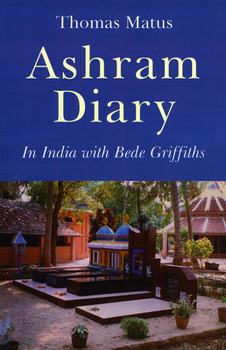Ashram Diary: In India with Bede Griffiths
Ashram Diary is a contemplative journey. In our world, ravaged by devastation and war, the words of Thomas Matus will replenish our lives with passion, energy, and love. Jim Conlon, director of Sophia Center, Oakland, California
Format:Paperback
Language:English
ISBN:184694161X
ISBN13:9781846941610
Release Date:March 2009
Publisher:Christian Alternative
Length:176 Pages
Weight:0.45 lbs.
Dimensions:0.6" x 5.4" x 8.3"
Customer Reviews
1 rating
A rich portrait
Published by Thriftbooks.com User , 15 years ago
Diaries and journals have a particular attraction. Informality, intimacy, and immediate impressions open up the writer's mind and heart to the page. These diaries cover the years from 1984 to 2004, years during which Matus, a Benedictine monk from the New Camaldoli community in Big Sur, California, spent long periods in India, and most particularly at Shantivanam. A Christian ashram in Tamil Nadu, the distinctive character of Shantivanam stems from its integration of Hindu and Buddhist practices and, above all, during his lifetime, from the powerful presence of Bede Griffiths. It is a place that has drawn many (including myself) and particularly Matus whose initiation as a sannyasi (renunciant) is described in the pages of this book. "Above all I am happy because, in some sense, I belong here, in India and in the ashram...in a certain sense I am always here." Thomas Matus writes on subjects as diverse as Jack Kerouac and Gandhi, and reflects, with engaging self-deprecation and sometimes surprising candour, on community conflict, on what it means to be a monk, and of struggles, even after thirty years, with his vocation. He describes in detail his forays into different parts of India, including the sometimes disquieting images of temple carvings. He is, he says, more at home with the Hinduism of yogis and sannyasis than with its temples, and his comments about Buddhism which "never `separated' from Hinduism as Christianity did from Judaism" are most illuminating. But he, and we, are drawn most to the ashram, and to Father Bede himself. The author describes Bede's stroke - which he viewed as "a grace, an awakening to the mother aspect of God" - his death, and the mourning period which Matus spent at Shantivanam. Even through difficult times, the author continues to affirm the beauty of life: "The goodness of human life and of God is known in the act of accepting life as it is - impermanent, incomplete, painful - and experiencing God as infinite, absolute and eternal goodness." This is a rich and clear-sighted personal portrait: of India, of the monastic life, of Father Bede and his community, and of the author himself.






